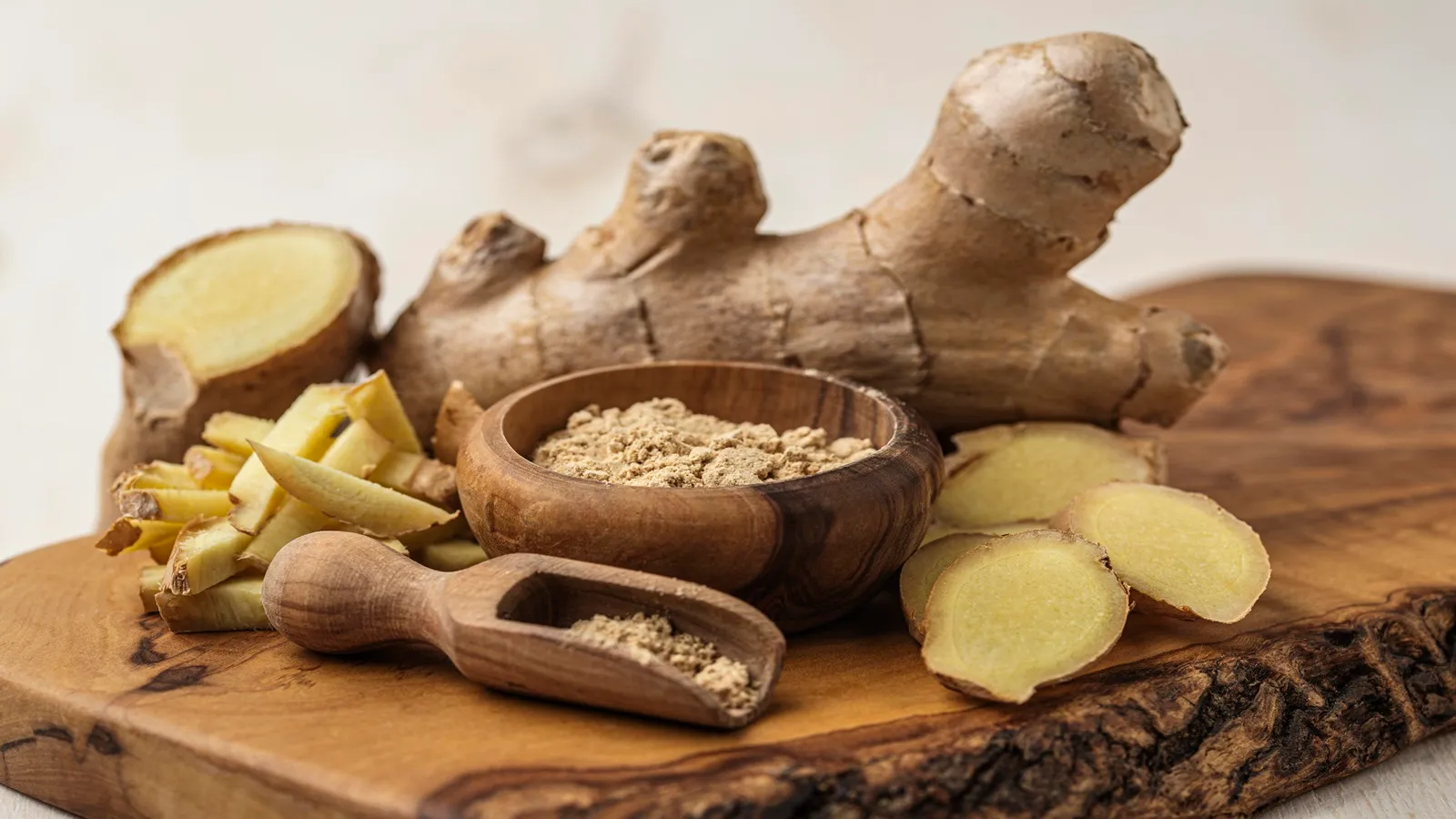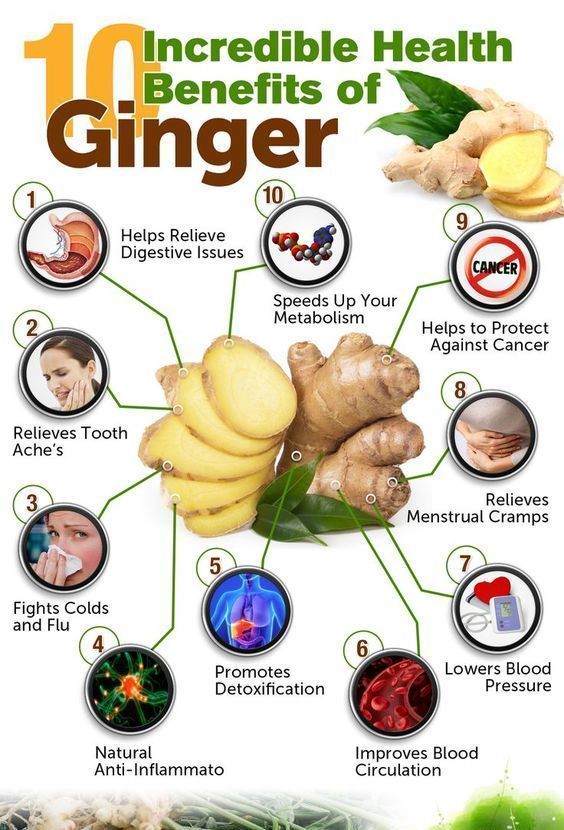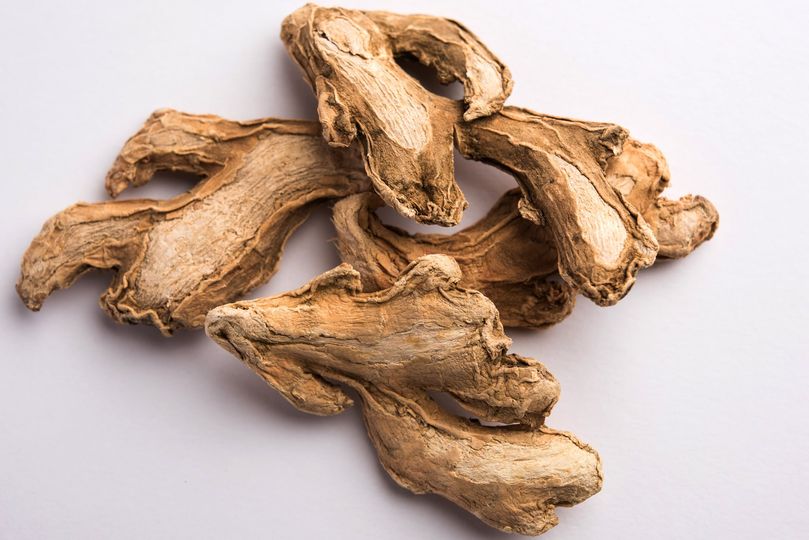
INTRODUCTION
Ginger (Zingiber officinale) is a flowering plant from the Zingiberaceae family, commonly known for its rhizome, which is widely used as a spice and herbal remedy. The term “ginger” refers to both the plant itself and the aromatic, knotted root that is harvested for culinary and medicinal purposes. Ginger is a root with medicinal properties, known for its anti-inflammatory, anti-nausea, digestive, and antioxidant benefits. It is used in traditional medicine to alleviate nausea, improve digestion, reduce inflammation, and support overall health.
HEALTH BENEFITS
Ginger (Zingiber officinale) offers a wide range of health benefits, thanks to its rich composition of bioactive compounds, particularly gingerol. Here are some notable health benefits of ginger:

- Nausea relief: Ginger is a safe option to reduce the symptoms of nausea and pain often associated with cancer treatment. When you’re undergoing chemotherapy, adding ginger to your diet helps combat the treatment’s side effects of nausea or dizziness. While ginger should not be considered a standalone treatment for cancer, incorporating it into a well-balanced diet may offer additional support in conjunction with conventional medical approaches.
- Pregnancy: For generations, women have praised the power of ginger to ease “morning sickness” and other queasiness associated with pregnancy. Even the American Academy of Obstetrics and Gynecology mentions ginger as an acceptable nonpharmaceutical remedy for nausea and vomiting.
- Weight loss: The thermogenic properties of ginger allow it to increase the body’s temperature and contribute to calorie burning. Ginger also controls insulin levels and aids in workout recovery. When it comes to weight loss, ginger can give your metabolism a boost and create a feeling of fullness to prevent overeating.
- Improves Brain Function: Ginger reduces inflammation and protects the brain from free radicals due to its powerful antioxidants. It also improves memory function by increasing the neurotransmitters in our brain responsible for memory, focus, and reaction time. Ginger even releases dopamine and serotonin to help fight mental illnesses like depression and anxiety.
- Digestive Health: Ginger promotes healthy digestion by stimulating the production of digestive enzymes and bile. It can help alleviate symptoms such as nausea, bloating, and indigestion. It’s particularly effective in reducing motion sickness and nausea related to pregnancy or chemotherapy.
- Blood Sugar Regulation: Some studies suggest that ginger may improve insulin sensitivity and help lower blood sugar levels. This can be beneficial for people with diabetes or those at risk of developing diabetes.
- Antioxidant Properties: The antioxidants in ginger help protect the body from oxidative stress and damage caused by free radicals. This can have a positive impact on overall health and longevity.
- Cardiovascular Health: Ginger may contribute to heart health by helping to lower blood cholesterol levels and improve circulation. This can reduce the risk of cardiovascular diseases, including heart attack and stroke.
- Healthier Skin: Ginger has some amazing beauty benefits. It’s able to improve the health of your skin with antioxidants, increased blood circulation, and antiseptic properties. Ginger’s essential vitamins and minerals contribute directly to skin hydration and nourishment. Ginger’s antioxidants can even protect the skin from UV rays and slow the breakdown of collagen, making the skin look younger and more supple.
- Bloating and gas: Eating ginger can cut down on fermentation, constipation and other causes of bloating and intestinal gas.
Preparation and Consumption
- Fresh Ginger: Can be grated, sliced, or chopped and added to dishes or teas.
- Dried Ginger: Often ground into a powder and used in baking or as a spice.
- Ginger Tea: Made by boiling fresh ginger slices in water, it’s a soothing beverage with potential health benefits.

DRY GINGER
Dried ginger is warmed with a hot, biting taste. The mature roots of the ginger plant are scraped, cut and laid out to dry to intensify flavor and increase longevity. Use in plant medicines and in combination with other aromatics to create unique flavor and aroma essences.
Characteristics of Dry Ginger:
- Form: Comes as a coarse or fine powder, or as whole dried slices that can be ground into powder.
- Flavor: Has a more intense and concentrated flavor compared to fresh ginger. It is spicy, slightly sweet, and can be more pungent.
- Appearance: Typically has a brownish color and a dry, powdery texture.
How to Use Dry Ginger:

Culinary Uses:
- Baking: Add to recipes for cakes, cookies, and bread.
- Spices: Use in spice blends for curries, soups, and stews.
- Beverages: Incorporate teas, smoothies, and hot drinks for added flavor and health benefits
Medicinal Uses:
- Teas: Mix a teaspoon of dry ginger powder into hot water to make ginger tea.
- Capsules: Available as dietary supplements but should be used according to medical advice.
- DIY Remedies: Combine with honey or lemon for a soothing remedy for coughs and colds.
Common Side Effects of Dry Ginger:
- Digestive Discomfort:
- Heartburn: Dry ginger can sometimes cause or exacerbate heartburn or acid reflux in some individuals.
- Gas and Bloating: Excessive consumption might lead to gas or bloating.
- Diarrhea: High doses can occasionally cause diarrhea.
- Allergic Reactions:
- Rash or Itching: Some people may experience skin rashes or itching.
- Swelling: Rarely, it can cause swelling in some individuals.
- Gastrointestinal Issues:
- Stomach Upset: In sensitive individuals, dry ginger might cause stomach upset or discomfort.
- Interaction with Medications:
- Blood Thinners: Ginger can affect blood clotting and may interact with anticoagulant medications (e.g., warfarin), increasing the risk of bleeding.
- Diabetes Medications: Ginger may influence blood sugar levels, so it could interact with diabetes medications.
- Heart Issues:
- Rapid Heartbeat: In large quantities, ginger might cause a rapid heartbeat or palpitations.
Precautions:
- Moderation:
- Use dry ginger in moderation to avoid potential side effects. Generally, a small amount is sufficient to reap the benefits.
- Consult Healthcare Providers:
- If you have pre-existing health conditions or are taking medications, consult with a healthcare provider before significantly increasing your intake of dry ginger.
- Allergies:
- If you have a known allergy to ginger or other similar spices, avoid using it.
- Pregnancy and Breastfeeding:
- Pregnant or breastfeeding women should consult a healthcare provider before using large amounts of dry ginger.
This Article is for Basic Information. Contact a professional doctor before using it.
HAKEEM KARAMAT ULLAH
+923090560000




